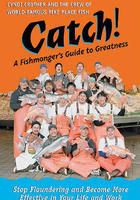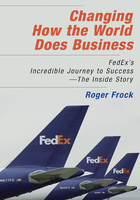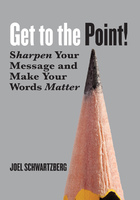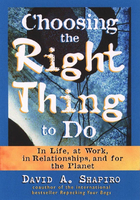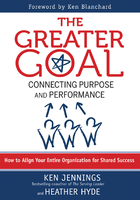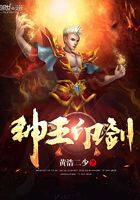FRENCH PHILOSOPHER PAUL RICOEUR introduced the concept of the "servile will" in The Symbolism of Evil, (1960).[1]The servile will is the will that makes itself a slave to authority. It diminishes human nature. Such a mental state, although seemingly extreme, is more commonplace than we would like to believe. There is a sense of freedom in liberating oneself from a will that is enslaved.
From our earliest socialization, we are rewarded for obeying all authorities: parents, teachers, religious leaders, politicians, and more. Nowhere in our educational system, or even our social system of values, is there training in appropriate disobedience or simply to distinguish between obedience to just authority and defying unjust authority.
In our private and public institutions, we see perennial catastrophic results of this failure among adults who should know better, but conform, comply, and obey anyone who conveys a sense of authority. In the schooling of our young, we see patterns of obedience being formed that lead to misplaced obedience when they become the adults in those institutions. Where do we turn to for fresh answers to striking the right balance between obedience to authority and independent choice?
We can turn to two places. First we turn to traditional social sciences for research-based answers and maybe solutions. Then we turn in a totally new direction, to be revealed to you in this remarkable book, about what we can learn from the training of trusted guide dogs who are taught what is called Intelligent Disobedience.
It is has been a half century since the great social science experiments on authority and obedience, first by Stanley Milgram at Yale University in the 1960s, then followed by my Stanford Prison Experiment in the early 1970s. Milgram's work revealed that among ordinary citizens, two-thirds were willing to deliver painful shocks at the insistence of an authority who was a stranger to them. The good news in that research program was that when participants observed people like themselves refusing to deliver the painful shocks, then 90 percent of them refused. That means we are prone to obey authority, but also affected by the behavior of our peers. Thus we are all social role models, and what we do-for good or for bad-has a ripple effect when other people observe us.
My research at Stanford University extended the Milgram paradigm away from a single authority issuing commands to having participants embedded in a social context where the power resided in the situation. Normal, healthy college students, randomly assigned roles of prisoner or guard, lived in a simulated prison setting-prisoners did so day and night, the guards for eight-hour shifts. We intended the study to run for two weeks but had to terminate it after six days because it had run out of control.
Our goal was to create the mindset in these college student participants that they were real prisoners and real guards in a real prison. That goal was accomplished far beyond what I could imagine when we began. In the contest between good people and evil situation, humanity lost and the situation won. Put differently, the dispositions of the individuals predicted nothing about how they behaved in either condition when overwhelmed by a powerful, novel social setting.
Even I was caught up in the power of that situation by mistakenly playing dual roles of principal investigator and prison superintendent. In the latter role, I became indifferent to the suffering of these young men, allowing the guard abuse that emerged to continue much longer than it should have. The takeaway message from this study is that human behavior is more under the control of situational influences than we want to believe, as we continue to cherish the concept of freedom of the will and inner determination of our behavior.
More recently, I have been conducting research in the Netherlands and Sicily, with my colleague Piero Bocchiaro, to illuminate the conditions that can lead to disobedience to unjust authority. We introduce the concept of productive disobedience, an act of peaceful noncompliance with laws or norms or the demands of authority that, if followed, would hinder the moral progress of society.
What happens when a scenario is described to college students that clearly depicts an authority figure making unethical and unjust demands on student participants, and they describe how they would react? The vast majority report they would rebel; however, when their classmates are actually put into that very same situation, just the opposite occurs-more than 80 percent blindly obey! This again reveals the power of situational norms to dominate moral reasoning.
Our only bright light was discovering that those high on the anti-authoritarian personality trait were best able to be defiant. We found disobedience could be enhanced when in the presence of student rebels and when obedience had a high personal cost. The overall high rate of obedience to authority was, however, distressingly high.
Despite my proselytizing these messages for many years, humanity is no closer to having absorbed the lessons of these experiments than it was before they were made part of our social consciousness. In our private and public institutions, we still see perennial catastrophic results of this failure among adults who should know better. It is evident in the schooling of our young where we see patterns of rigid obedience being formed from day one by teachers and officials. This leads, in turn, to misplaced obedience when these students become the adults and taxpayers supporting those institutions. Nowhere is there any attempt to teach the fundamental difference between just and unjust authority, the former earning our respect, the latter justifying disobedience and rebellion.
Where do we turn for fresh answers for striking the right balance between rigid, mindless obedience to authority and independent choice? Our society gives lip service to creating independent thinkers as a primary result of all education. But so far, there is not much to show for the success of that ideal.
I was surprised to discover the answers I was seeking in this remarkable book by Ira Chaleff. He offers us a metaphor and an effective model from "man's best friend." It is clear that we painstakingly teach guide dogs how to discern between when to obey and when to resist in order to avoid causing harm if given dangerous commands. Surely, we can do the same in the acculturation of our young and the development of our professionals in the highly sensitive roles that our society gives them to make things run properly. Whether training teachers for classroom management, guards for the security roles that have become ubiquitous, or information specialists who control our privacy and the protection of our identity, it is crucial to develop new ways of distinguishing between appropriate obedience and rightful disobedience.
Reading this remarkable book has given me new hope for the prospect of humanity finally learning the overdue lessons needed to cope effectively with the many urgent challenges of our times. I do hope that you, dear reader, will also learn and apply the vital messages contained in Intelligent Disobedience. It is our communal responsibility to see that its lessons will be taught in relevant ways at every stage of human and professional development-to our youth, as well as to our social, religious, business, and political leaders.
Philip Zimbardo
Creator of the Stanford Prison Experiment, 2014

